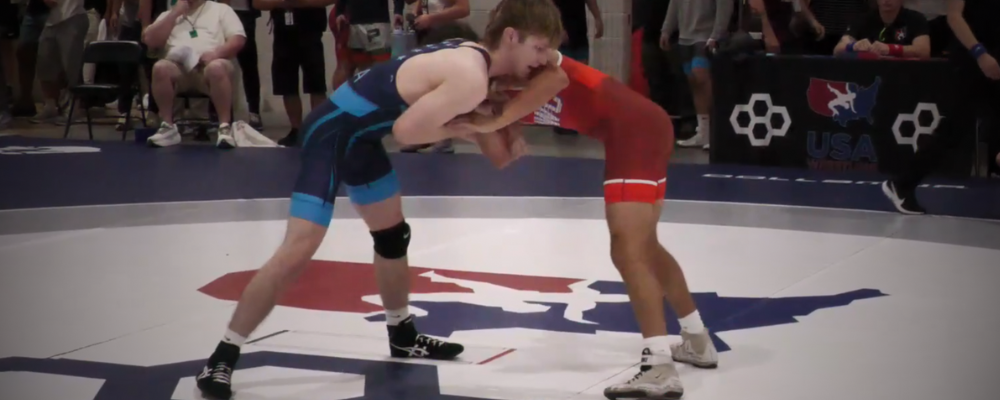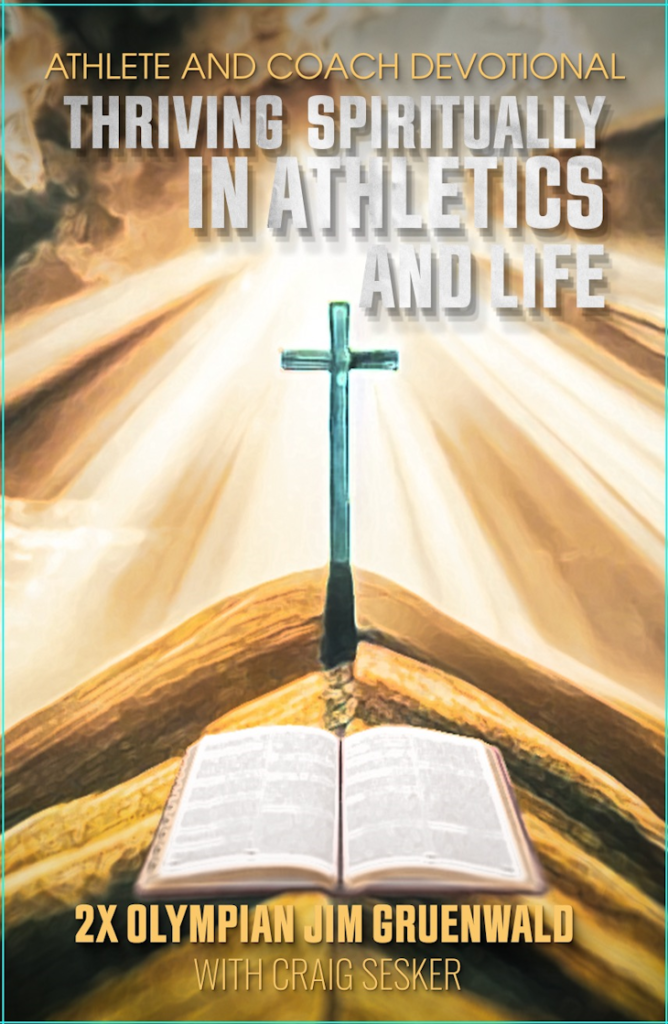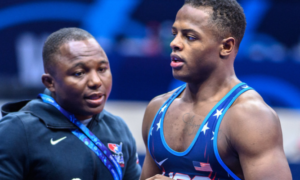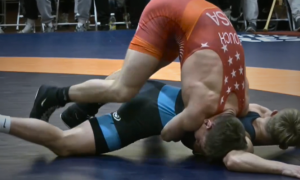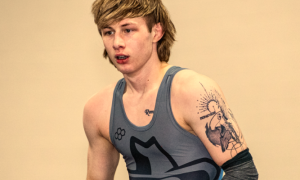Approximately two years ago, Rhett Peak (60 kg, NYAC) was identified as one of the most promising Greco-Roman prospects in the United States even though, at that time, he had not yet tested himself on the Senior level. But Peak, who hails from Oklahoma, generated enough buzz due to how he “looked” when competing against fellow age-groupers, and his stock rose another notch soon after he took up residence at the Olympic and Paralympic Training Center in Colorado Springs. Between scanning through various tournament results, scouting reports from coaches, and listening to anecdotal evidence provided by his contemporaries from the OTC wrestling room, there were enough reasons for American Greco supporters to consider examining the case further, if not totally buying into the hype.
And Peak held up his end of the bargain. He ventured out into Senior competition for the first time in the fall of 2023, just as the “Olympic Year” started heating up. His initial performances were not accompanied by outcomes he would have preferred, but that was just fine. In fact, it was expected. 60 kilograms is always a very deep and competitive weight category in the US, and certainly much more so when Olympic Trials qualification is on the line. For the most part, young Peak kept his head above water. He had won some matches, lost some more, but there was, is, little doubt as to the potential height of his ceiling. Then in the summer of ’24, Peak thumped his way through the Fargo Nationals to sort of emphasize the optics of his development: when opposed by athletes in the same age division, he was pretty much lights-out; and against Seniors, he was gaining ground and on the right track, but not ready for a breakthrough just yet.
Now in ’25, Peak is continuing to inch closer and closer to asserting himself on the sport’s top level. At the US Senior Trials in April, he endured an early loss to tough and experienced Senior Dylan Koontz (TMWC/Dubuque RTC), won his next two bouts (one of which came against two-time U23 World rep Phillip Moomey), and closed out with a decision loss to multi-time World Team member Dalton Roberts (Army/WCAP). One additional and interesting wrinkle related to the situation is this: Peak is still only just 20-years-old but misses the “cut-off” date for U20 competition by a mere two weeks. So, in April, he had no other choice but to jump in the Senior bracket if he wanted to enter the fray. In that light, he is like a man in-between: barely too old for the Junior level, and a potent but unpolished young thoroughbred on the Senior level.
This perhaps might be why Peak shined so brightly at the U23 Nationals two weeks ago. The athlete himself seems sure seems to think so. Peak, despite an understated yet steely confidence in his own abilities, acknowledges that he requires a little more physical maturity and competitive experience in order to elevate his standing at Senior — while simultaneously expecting to do exceedingly-well against, basically, anyone else who fits a profile similar to his. To be sure, at the U23 National tournament, he cruised through his bracket before emerging victorious in the best-of-three finals opposed by talented Jakason Burks (MWC).
Given that Peak was the subject of a rather extensive interview this past fall, the aftermath of the aforementioned U23 Nationals seemed an appropriate time to conduct a follow-up with regards to his triumph in that event as well as to glean insights into how he has assessed his overall progress thus far.
Rhett Peak — 60 kg, NYAC
5PM: There wasn’t really much on the schedule for 2025 until the spring. What was the workup like for this tournament?
Rhett Peak: The workup was really heavy. After Vegas (the US Open), (Ismael) Borrero was like, ‘You have to be doing more.’ In his eyes, I wasn’t doing enough and he was pushing me to do a lot more after workouts. Like on Wednesdays and Saturdays we have half-days, and on those days he was making me do a lot. So it was a lot more work compared to the lead-up to Vegas versus the lead-up to this. It was a lot heavier of a workload.
5PM: Well, in the lead-up to Vegas there was not much going on then, either. When you were training for the Senior Open, what was missing that you were being called upon to implement?
RP: The lead-up to Vegas was the same plan we had always been on. We do two-a-days. We’ve got Monday, when we lift in the morning and wrestle in the evening; on Tuesdays we’re wrestling twice; Wednesday is a half-day; Thursday, we wrestle twice; Friday, we lift in the morning and wrestle in the evening; and Saturday is another half-day, and we have Sundays off. But he felt like I wasn’t doing enough afterwards, after practices.
I was getting the work in, but then practice would be over and I’d be like, Okay, I’m done, right? I’d go back to my room, eat, and then recover. But he was like, ‘No, that’s not enough, you’ve got to do stuff after practice. Whether I’m telling you to do it or not, you have have to be working more after practice is done.’ That is what the difference was between Vegas and U23’s. And it isn’t as though he was was asking a lot. He didn’t say, ‘Oh, I want you to be doing x-amount of rope climbs or a certain number of par terre defense reps’, or tell me to do however many dummy throws, pull-ups, or sprints. It was more about doing the little things, but doing them every single practice afterwards because it accumulates. It snowballs, and that makes a difference.
5PM: Due to fan interest from this tournament, describe your patented move, whatever you want to call it.
RP: (Laughs) You mean the “Iron Cross”? That’s something I’ve been working on for a long time. I got that years ago from the coach at Cowboy RTC, Zoheir El Ouarraque. He’s a freestyler from France. But that’s really who I learned it from and it was when I started making a name for myself in Greco back at U17’s. I learned that and drill it everyday. I work it a lot in live and it’s something I’ve had some success with. It was something that made me different. It’s a threat that people don’t see often. In order for people to defend that, they have to think on the spot. It’s on the fly. Like with a gutwrench, you drill gut defense everyday. You drill lift defense everyday. You don’t drill defense to that everyday. So, when someone feels that for the first time, or they don’t feel it often, it throws them completely off and that’s what makes it special. It is something people don’t feel everyday, and that’s what makes it hard to stop.
5PM: You had a good-sized bracket in Ohio and leading to the finals you won each match dominantly. This tournament was also your first since last year that was not on the Senior level. So, this must have felt pretty good.
RP: Wrestling guys who are actually in my age range — though I guess 23 is still three years older than me. Still, it’s not like wrestling Seniors who are mostly 27-year-olds is a big difference. That’s a huge difference, that physical maturity. Your frontal lobe in males doesn’t develop until 25 to 27, right? So for someone like me, who is 20, not only do I have a long ways to go physically, but mentally you’re a different person when you’re 25-years-old. When I’m 20-years-old at U23’s, I’m not even the same mentally where these guys are at. So when you look at me mentally by the end of this quad, or going into the next one, I won’t be the same person in how I think compared to now. That’s a big difference.
5PM: Burks is a wrestler who is very well-schooled, coached by Zac (Dominguez), and was a Cadet World Team member. He has gone back-and-forth with the styles a little bit…
RP: Yeah, he won D2 nationals this year.
5PM: Other than that, did you have any idea of what he looked like as a Greco wrestler prior to this series?
Rhett Peak: Leading up to the series, I didn’t really pay attention to anyone else. It’s really just taking one match at a time and going out there to impose my will and wrestle how I do in practice everyday. But, obviously, I get to the finals and am like, I should probably watch a couple of matches to see this guy’s tendencies. I’m not out there overanalyzing, I just want to see what he likes to do so that I’m not completely caught off-guard by something.
But aside from that, nothing much. I knew that he came out of Dominguez’s group and I’ve wrestled just about all of his guys at least once, minimum. I thought I was pretty well-prepared stepping out on the mat against him.
5PM: Match 1 you were by and large in control. Match 2 was tight.
RP: Yeah. I mean, towards the end.
5PM: When it’s a close match like that in the second period, what is your mindset? You had a lead, but not a margin for error.
RP: You’re up, you want to close the match out, and you don’t want to give up anything. And that’s hard, because if you go straight backwards you could get caution’ed out. It’s really just holding good position, trying to get my ties, and keep walking forward. And really, I know that he’s looking to score. I mean, it’s clear and evident. He doesn’t have a lot of time left, and he’s down on points. Really, that’s a great time to score if I can. Obviously, I didn’t in this match; but, ideally, when they are looking to score, they’re just as vulnerable. It’s a great time to tack on additional points and extend that lead.
5PM: It’s only June. There are still training opportunities, a couple of very good ones for you. Are there any plans for you to be able to compete at some point before the summer is out?
RP: I would love to. I’m going to talk to my coaches about what the next step is for me. I’m going to obviously get in as many camps as I can. Training is of course extremely important, but I love to compete, too. I have to talk to my coaches and get that figured out because at this point I don’t have anything that is slated to where I could say, Oh, I’m competing there.
5PM: In an ideal situation, what would you do?
RP: Camp or tournament?
5PM: Tournament.
RP: I’d love to slip into a “Ranking Series” tournament, I think that would be awesome. I don’t know if I’d get that opportunity. But if I do, I’d gladly take that because I think it would be an amazing experience and tournament for me. If it’s not there, then I don’t know where it would be. I’d have to talk to my coaches because I don’t know yet.
5PM: Last year, you won a National title at Fargo. Now, you’ve got one at U23. Last year, it was all about how you were so young and also trying to test yourself at the Senior level. This year, you were not anonymous. What have you learned about yourself this season compared to last?
Rhett Peak: I feel like Vegas (the US Open) wasn’t my best showing whatsoever. I feel like it wasn’t bad, but it could have been so much better and I expected a lot more from myself, as did my coaches. But really, I think it was still a step in a positive direction. Falling forward if I’m going to fall at all, right? That’s the biggest key, especially at my age. If I’m going to fall, I’m falling forward. I think that’s what I did. I continue to slowly climb the ladder and take steps forward.

Listen to “5PM57: Kamal Bey and David Stepanyan” on Spreaker.
Listen to “5PM56: Rich Carlson and Spencer Woods” on Spreaker.
SUBSCRIBE TO THE FIVE POINT MOVE PODCAST
iTunes | Stitcher | Spreaker | Google Play Music


